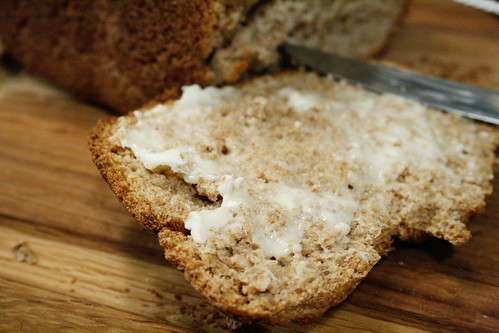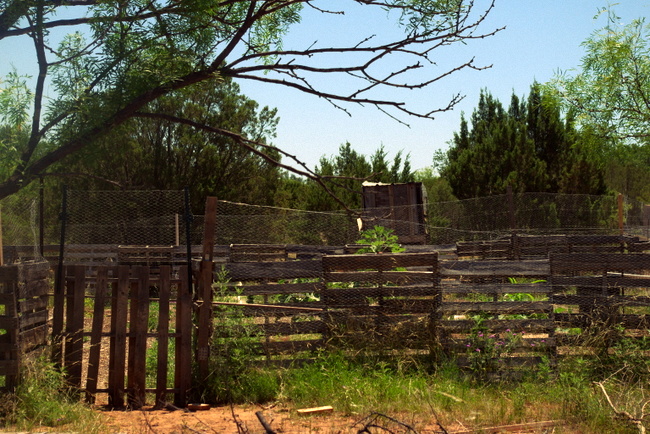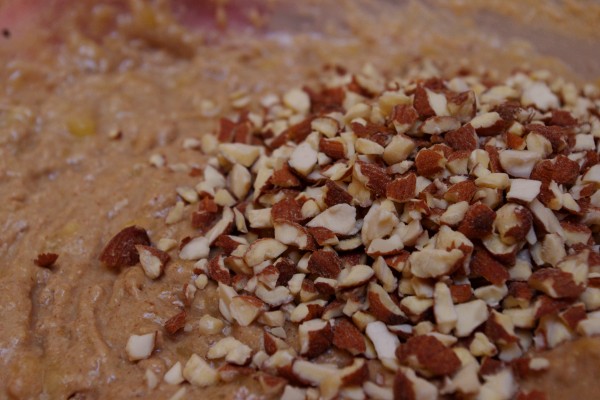My Reasoning for Soaking Grains, Nuts, and Seeds
The soaking of grains, nuts, and seeds is something I’ve only been doing for a couple of years now, gradually increasing the practice with time. There is a bit of controversy over whether it is necessary or not, and frankly I was a bit skeptical myself when I read Nourishing Traditions. At the time I was baking my own bread from home-ground wheat and I thought it was the healthiest bread one could possibly eat.
So when I read that my version of homemade bread may not be good for you, I was a little disappointed. But then, in the light of both history and science, it began to make sense to me as I thought about the process of bread making. Besides all of the research I have done on the subject, through a bit of reasoning and my own experience I am now convinced that soaking grains, nuts, and seeds is beneficial to our health.
My Own Reasoning
Speaking of bread, let me use that as an example of why soaking grains and nuts makes sense and is a traditional practice.
Bread is mentioned many times as part of the diet in the Bible. So it is not as though bread is some new-fangled food. But the ingredients and the process by which bread is made is probably much different now. Now we breed wheat to be a higher gluten-containing food (consequentially also more allergenic), we have tiny packets of yeast that make our bread rise in just an hour or two, and if you are buying store bought bread you will be hard pressed to find one without rancid vegetable oils or high fructose corn syrup.
I would venture to guess that bread made in Biblical times was made of something more similar to spelt (lower in gluten), the grains were ground freshly by hand, and the only other ingredients were water, salt, and some form of homemade leavening. This leavening I believe is the key difference, and it would probably resemble something similar to what we now know as a sourdough starter.
This starter would probably have been made by a mother or grandmother of the family and most likely only contained freshly ground grain and water. This concoction would trap the naturally occurring yeast in the air and then could be used to produce the carbon dioxide that would create a raised loaf of bread. The rising process, however, would take at least 12 hours, and perhaps even days. Through this rising time, and the acidity of the starter, by the time the dough was ready to be baked it most likely had a sour flavor, fewer carbohydrates, more nutrients, and little anti-nutrients.
The bread grains have been "soaked" in an acidic medium (the starter) for many hours at this point. So this is the soaking process that traditional bread went through.
Recommended Reading
Many of my blogging cohorts have written extensively on this topic, as it is an important one. I will be sharing my own experience with soaking later in the week but for the mean time here is a bit of recommended reading:
- Donielle :: Adventures in Soaking
- Kimi :: Soaking Grains, Part 1
- Kimi :: Soaking Grains, Part 2
- Kimi :: Soaking Nuts
- Anne Marie :: Why Soak and Sprout Grains
How about you… do you soak your grains, nuts, and seeds? Why or why not?





I don’t currently soak anything unless the recipe calls for it. I’ve been reading more about it in various blogs, though, so it’s on my radar screen. Right now I just don’t know how I’d have time to do it – I have such a hard time as it is cooking on a regular basis.
I’ve had many attempts of trying to get into the rhythm of soaking grains, but it’s been one of the hardest changes for me. This year we are dramatically reducing our grain consumption anyway, moving away from whole grains as a primary source of nourishment, so I’m not stressing about it too much. I’m not eating any flour products or any wheat myself, but my kids still eat bread. So I still hope to develop and maintain a sourdough starter (with something other than wheat) so I can make their bread.
Although soaking grains (and nuts and seeds and beans, any seed food, really) makes sense to me intuitively, I haven’t seen any studies on the matter. I can’t think of a WAPF-oriented writing that has referenced a study or historical document about soaking grains (except regarding the Essenes). Do you know of any studies on this issue?
Hi, I’ve been soaking things for a while now. Mostly oatmeal and things like pancake/waffle batter. I have not had any success at bread making, soaked or not.
One thing I wonder about, though, is if I make a big batch of oatmeal for the week…does the phytic acid soak out after day two? I mean, is it really necessary to soak it if I’m batch cooking for a week? Hmmmm.
I’m probably half and half. I’ve been soaking most of the nuts I eat but not seeds (I don’t have a good dehydrator for that). I’ve begun soaking my flatbread and waffle recipes using coconut yogurt (I’m dairy-intolerant and GF). Cookies and muffins are so far unsoaked. I also use almond flour that is unsoaked. Eventually I’m hoping to have everything soaked other than maybe cookies – they’re in the “treat” category and we don’t eat them that often. I do soak beans, though we do eat the odd can of unsoaked beans now and again…
I’m still working on the science behind all this! I’ve bookmarked your page to link up when I talk soaking (again) and sourdough. Thanks!
🙂 Katie
I’ve got two issues I’m trying to sort out, so maybe you have some experience. I love making bread and I feel that good wholewheat bread is healthy. The downside of making bread every week for the last two months is that we have packed on weight in a big way. Not good, since I’m trying to help my boyfriend with a weight problem. So, my first question is, does soaking seem to help with the health effects caused by regular bread? I’ve noticed eating more bread seems to affect the heart and I’ve also read that wheat can cause arterial problems. Which leads to the second question; does wheat made from spelt/kamut seem to be more digestible and cause fewer health issues?
I’ve got Nourishing Traditions so there’s no excuse for me not to soak, other than I can’t seem to get the starter going the night before. When I’ve tried to cold rise dough overnight, it seems to smell fermented. I suspect that we may have to give up wheat and bread, maybe limit it after we’ve gotten better at burning calories.